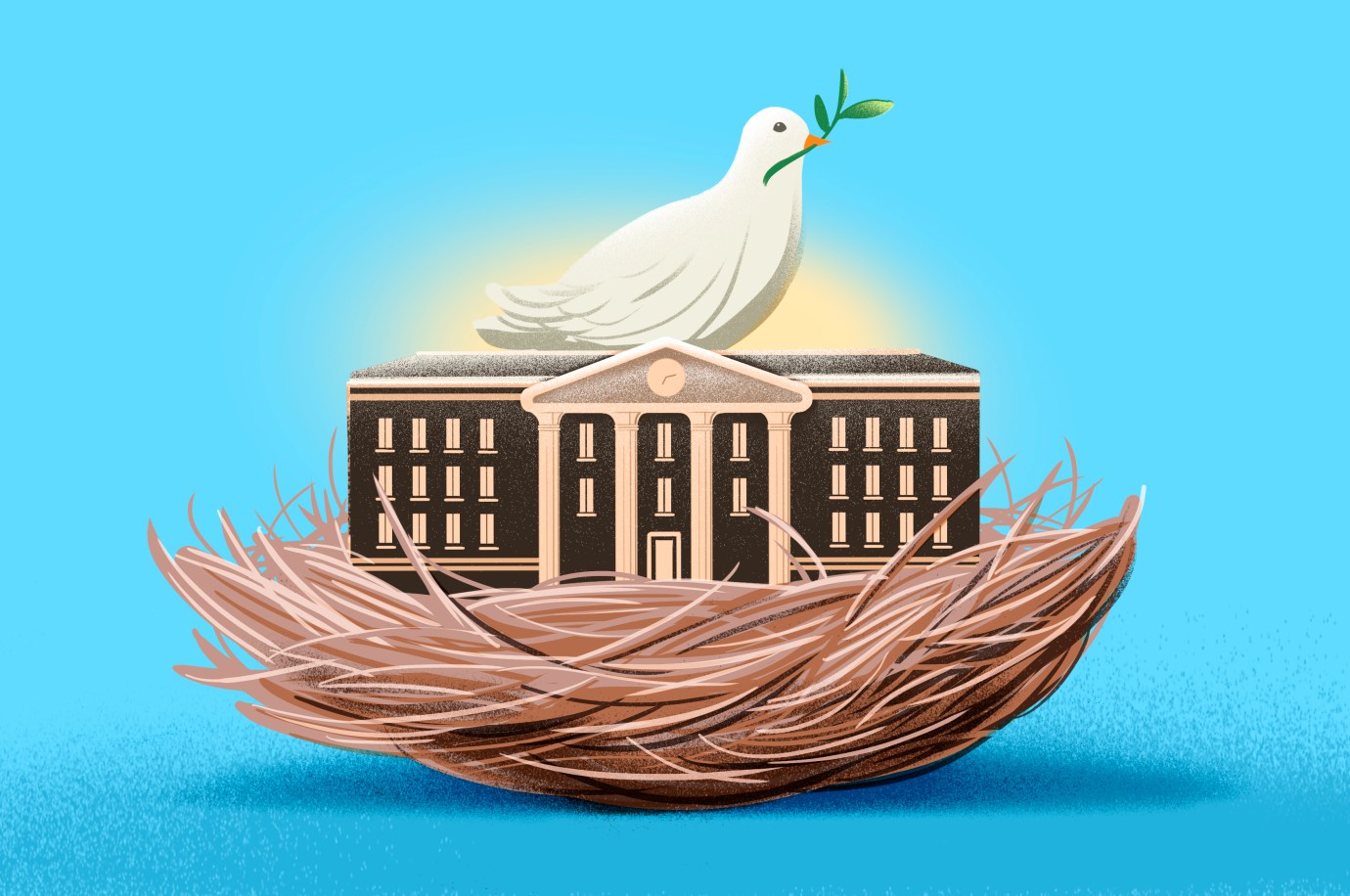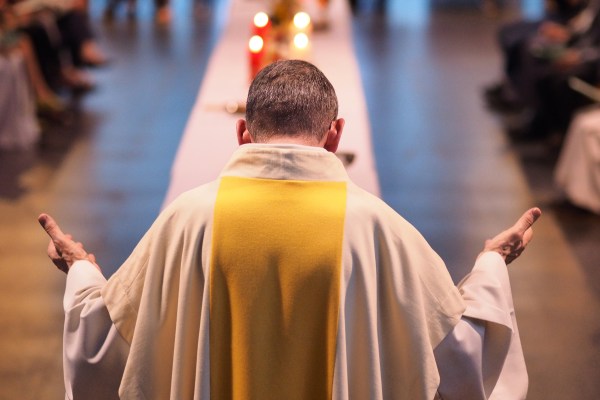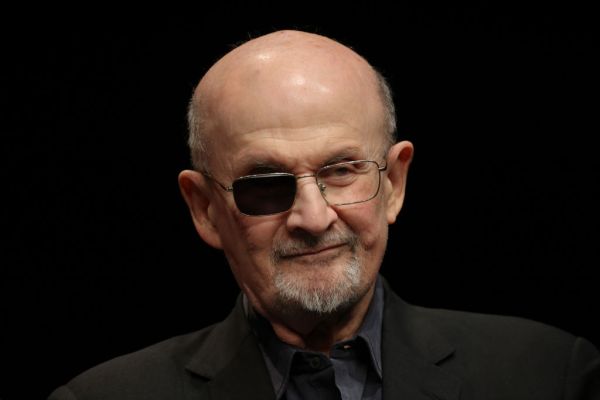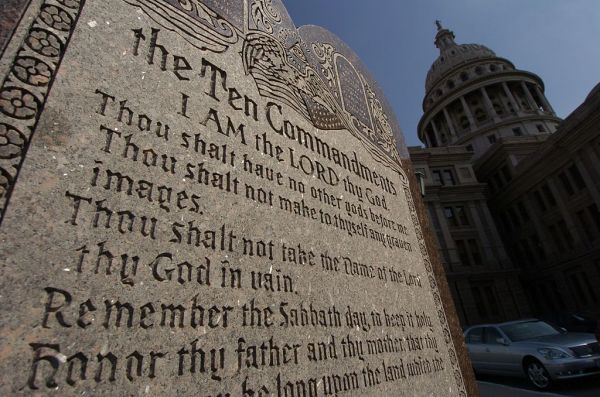Happy Sunday! I grew up in the same community my dad did, and walked some of the same school hallways. In fact, his senior class was the first to graduate from the high school building I would later graduate from. It’s also where my grandmother—his mom—was a faculty member after spending years as an elementary school teacher.
So even now, when I go back home to visit my parents, it’s not uncommon to run into folks around town my grandmother taught in school—and hear them express their gratitude. Growing up, there were plenty of times we’d be out with my grandparents and someone would call her name, give her a big hug, and thank her. “Nana,” as we grandkids called her, took her Christian faith seriously and saw in her profession an opportunity to help kids in her classroom who grew up with challenges similar to what she grew up with. From Dad and others I heard stories of Nana bringing kids who perhaps had rough or broken family lives into her own home (keep in mind how different life was 50 and 60 years ago) as a safe haven after school. For kids whose families didn’t have much money, she’d quietly buy clothes or offer a few meals. From everything I know, Nana was great in the classroom and always sought to prioritize her students. But she used her opportunities inside the classroom to serve kids outside of it.
I couldn’t help but think of Nana when discussing and editing this week’s Dispatch Faith essay with author Karen Swallow Prior. With increasing hostility between public school systems and conservatives—and not always unfounded—Karen argues that once upon a time, Christians saw public school systems as opportunities to love their neighbors. A lot has changed since then—and since my grandmother sought to do that herself—but Christians should still find those opportunities, Karen says.
Karen Swallow Prior: Supporting Public Schools Is an Opportunity For Christian Charity

Like nearly everything else in public life these days, public schools have, of late, been subject to intense polarization and controversy.
Over the past few years, raucous local school board meetings have resulted in headlines so sensational they would have made the late Jerry Springer blush. Virginia’s state government established a tip line (then quietly discontinued it) to encourage parents to report suspected incidents of “inherently divisive practices” being taught in their schools. Meanwhile, grandstanding special interest groups are drowning out more reasoned discussions about classroom curriculum and reading materials (and at least one of these operations was led by a person engaging in the very sorts of behaviors the group claims to oppose). Positive and negative views of public education are now sharply split upon partisan lines as is, increasingly, church attendance, suggesting that both religious and political conservatives in general are growing less supportive of public education. Conservatives are calling for public funds to be used for other schooling options while simultaneously seeking mandates for various religious teachings in public schools.
Inarguably—faced with violence, high levels of absenteeism, teacher and staff shortages, and pandemic-related learning losses—public schools are in crisis. Of course, it should come as no surprise that whatever society at large is struggling with is concentrated and amplified in our schools. A society’s children bear its communal sins like scars.
But this is more reason—not less—for Christians and people of all faiths to work even harder toward strengthening public schools.
On one hand, it’s not surprising that conservatives—whether from religious or political convictions, or both—are often at odds with the means and goals of public education as it exists today. Important and legitimate questions around parental rights, religious liberty, taxation, and government reach are neither new nor limited to the issue of public education. But such questions are becoming more intensified. Moreover, given the overall secularization and diversification of a society which, less and less, can be assumed or expected to reflect specifically Christian beliefs, it’s tempting to see the only viable options as taking over or checking out.
Yet, on the other hand, assuming a natural or inevitable hostility between public education and Christian belief is as erroneous as it is tragic. As Marilyn Anderson Rhames states in a story for Christianity Today, “Disenchantment with public education appears to have much more to do with political ideology than religion.” Indeed, the weakening of support of public education by conservative Christians today is ironic when one considers the history of the church’s visionary role in public education.
Because of the importance he placed on the ability to read the Bible for oneself, and therefore on the necessity of the ability to read, Martin Luther advocated for compulsory education. The Puritan settlers in colonial America were also passionate about education, not only for the sake of their own religious practices but for the sake of the community as well (even if those early communities were assumed to share their beliefs). Through the influence of John Cotton, the oldest school in America, Boston Latin School, was founded in 1635. By the mid-17th century, the Massachusetts Bay Colony established laws around the provision of schools in every town of a certain size, and the first tax-funded public school was opened. Throughout the 18th and 19th centuries, both in England and America, Christians led in founding and funding institutions that would bring better and more accessible education to more people, particularly to the laboring classes and the poorest people.
Even when they educated their own children at home, in denominational schools, or through private tutoring, these same Christians—motivated by a sense of Christian social duty as well as the understanding that literacy is key to robust Christian faith and flourishing communities—sought to promote and provide education for others for the sake of the common good through Sunday Schools and charity schools. Some of the most luminous names in church history made their names by bringing education to the masses: Robert Raikes, Sarah Trimmer, Hannah More, Francis Asbury, and Catherine Ferguson, just to name a few. Raikes was moved to open Sunday schools for the poor as a result of his work among prisoners. He saw education as one way to end the poverty-to-prison pipeline, even as early as the 18th century. Later, Hannah More recognized both the link between poverty and lack of education as well as the Christian duty to help alleviate such suffering. The dozen or so schools she opened in the late 18th century that served the poor in rural English villages transformed those communities by teaching poor children reading, arithmetic, and skills for gainful work. The establishment of public school systems and compulsory education laws by the end of the 19th century merely followed the lead of the long, good work done by religious institutions and individuals.
That legacy is worth remembering and continuing today, particularly by people of faith who have always understood that education has eternal as well as temporal consequences. The English Puritan Richard Baxter described education as the “ordinary way” for God to convey his grace. Thus, education in any setting can be a means of what Christians know as “common grace.” As another Puritan, John Cotton, preached, “Zeal must be according to knowledge, knowledge is no knowledge without zeal, and zeal is but a wild-fire without knowledge.” While Cotton was talking about Christian zeal, his words apply to all forms of zeal that fuel our diverse world today. Knowledge can temper all such flames.
This doesn’t mean turning public schools that serve diverse religious (and non-religious) communities into Christian schools. Nor must Christians have children in the public education system in order to support it and the people it serves. Just as the state of highways and railways we don’t personally traverse affects us through the delivery systems that do affect us, the accessibility and quality of education offered to all affects us all.
Yet, results from annual polling on attitudes toward public education show that its importance is down by 5 percentage points among most Americans compared to polling done just four years ago. A more telling finding in the same poll is that 60 percent of those surveyed would not want a child of theirs to take up teaching in the public schools, a figure reflecting a dramatic shift from when that question was first asked in 1969 and 75 percent of respondents would want their child to become a teacher. Indeed, as recently as 2011, 67 percent were favorable toward the idea of their child doing so. Whatever the reasons (and there are several), they indicate a drop in respect and esteem for both the profession and the schools.
Again, regardless of what options we choose for schooling our own children—or what professions our children choose later in life, or whether we even have children—we ought to care about all children’s education.
Fortunately, there are many ways people of faith can support the public education system (even without turning a blind eye to its problems)—and in so doing contribute to the overall flourishing of young people and the future of our communities.
Churches can organize formally to provide vision, networking, and support for public schools in their states as do Pastors for North Carolina Children and Pastors for Oklahoma Kids, the latter founded by a local pastor upon learning that his state was among those offering the least amount of funding for public schools.
More informally, churches can support public school teachers in a variety of ways, as one Christian teacher in a public school system recently urged. After all, more than a third of public school teachers are evangelical Christians. Rather than railing at the schools from the outside, fellow believers might seek the perspective of those ministering on the inside and in so doing learn better ways to make a positive difference. In his later working years, my father drove a school bus. He treated it as a ministry simply to be a steady, safe, and reliable presence in the lives of the students and families he served for over a decade. My husband, who is a public school teacher, also sees his work as a robust ministry, one in which he not only teaches students practical skills, but is able to be one more positive adult role model in the lives of students who have too few of these. He also keeps a stock of food in his office for any students who come to school hungry. Especially in light of staff and teacher shortages, some people of faith might want to consider if working in a public school could be their calling.
There are plenty of easy, short-term ways to support local public schools, too. Attend theater productions, musical performances, and sporting events. Volunteer your time. Donate classroom supplies. Participate in fundraisers. Be a tutor or mentor.
Finally, sometimes what we don’t do can be just as helpful as what we do do. Simply restraining from amplifying the latest viral social media post designed to get clicks and garner outrage might be the most constructive thing you can do for your community, teachers, and students. Be informed. Ask questions. Offer to help. But resist the urge to spread distortion or misinformation.
The vast majority of students in America attend public schools. Thus, the schools we support today are serving the children who will most likely grow up to be employees or owners of the places where you do business. They will be your caretakers, doctors, and nurses. They will be the friends or even the spouses of your own children. They will be your neighbors. They are already your neighbors.
Public education still serves the common good. Public education still needs people of faith to make that good even better.
More Sunday Reads
- For Christianity Today, Kate Shellnut explains why Bethany Christian Services—the largest Christian adoption and foster care agency in the U.S.—is suing the state of Michigan. The state requires organizations it contracts with, such as Bethany, to hire employees from across faith traditions, which presents issues for an explicitly Christian organization such as Bethany. “Christian organizations like Bethany play a huge role in refugee resettlement and foster care services, both areas that rely on contracts with the government. Even after a 2021 Supreme Court ruling sided with a Catholic foster agency that was denied a government contract in Philadelphia, the justices didn’t override a precedent involving the general applicability of state laws (Employment Division v. Smith), so cases continue to emerge around faith-based providers seeking government funding. Bethany has been in a deadlock with the state before. When Michigan declared in 2019 that foster agencies couldn’t turn away LGBTQ families, the organization opted to change its policies in the state and then across the country. Leaders at the time argued that it was the only way for Christians to continue to care for kids in the system. As the state of Michigan began challenging Bethany’s faith statement requirement, there were reported rumblings over the policy internally. In January 2024, a local TV news station in Grand Rapids reported on a ‘culture clash’ at Bethany, with unnamed staff describing a stricter enforcement of the Christian hiring policy under Cureton and tensions as the refugee branch moved into the organization’s main headquarters. When asked about the claims, Hurst said, ‘Like any organization, sometimes you have differences in implementation, but we are unwavering in our mission and our values and our statement of faith.’”
- Writing for Providence, Antonio Graceffo reports on what could be an encouraging sign for religious freedom in China—or what could be just a public relations campaign on the part of the Chinese Communist Party. “Bishop Shi, who had been under house arrest for years due to his refusal to join the state-backed church, was officially recognized by the CCP for civil purposes on August 27, 2024. This recognition could be seen as a concession to the Vatican, with Beijing finally appointing a bishop from the underground church who had resisted Communist Party dictates. However, it could also be viewed as a PR stunt, a strategic move by Beijing, using the appointment of the 95-year-old bishop, who may not live much longer, as a bargaining chip to gain concessions from the Vatican and exert greater control over the Catholic Church in China. The true significance of this appointment will be revealed when Bishop Shi passes and the time comes to appoint his successor—whether the Vatican will have the final say or if the CCP will appoint someone unilaterally.”
A Different Kind of Sunday Show
Karen Swallow Prior joined me for this week’s Dispatch Faith video podcast to talk about this week’s essay, the newly released Confession of Evangelical Conviction, and even a little Frankenstein. Head over to our YouTube channel to check it out and pass along.
A Good Word
Nigeria faces a host of problems, not the least of which is religiously motivated violence. For that reason, it was a small sign of encouragement when Christians and Muslims protesting government actions there last month forged a small symbol of civic cooperation even as the country wrestles with its problems, as Ekpali Saint writes for Religion Unplugged. “‘Hunger is the common religion now. We are united in it, we are united by it,’ [Younglan Talyoung] said. ‘Everyone is tired, [so] no one has the strength to fight.” On Aug. 2, the second day of the protests, photos of Christian demonstrators who stood guard while their Muslim counterparts observed their Friday Juma’at prayers in cities like Jos went viral on social media. Talyoung experienced this moment, saying, ‘I had goosebumps when the time for them [Muslims] to pray came and space was created for them to pray at the protest ground. I felt hope.’ The following Sunday, Muslim demonstrators extended this same act at a church service held at the protest venue, also in Jos. ‘Honestly, I was doubtful they would do the same for their Christian counterparts,’ said Talyoung, a veterinary medical student at the University of Jos. ‘But when Sunday came and they turned up and joined the service, I was glad. We are moving forward, we are making progress.’”










Please note that we at The Dispatch hold ourselves, our work, and our commenters to a higher standard than other places on the internet. We welcome comments that foster genuine debate or discussion—including comments critical of us or our work—but responses that include ad hominem attacks on fellow Dispatch members or are intended to stoke fear and anger may be moderated.
With your membership, you only have the ability to comment on The Morning Dispatch articles. Consider upgrading to join the conversation everywhere.